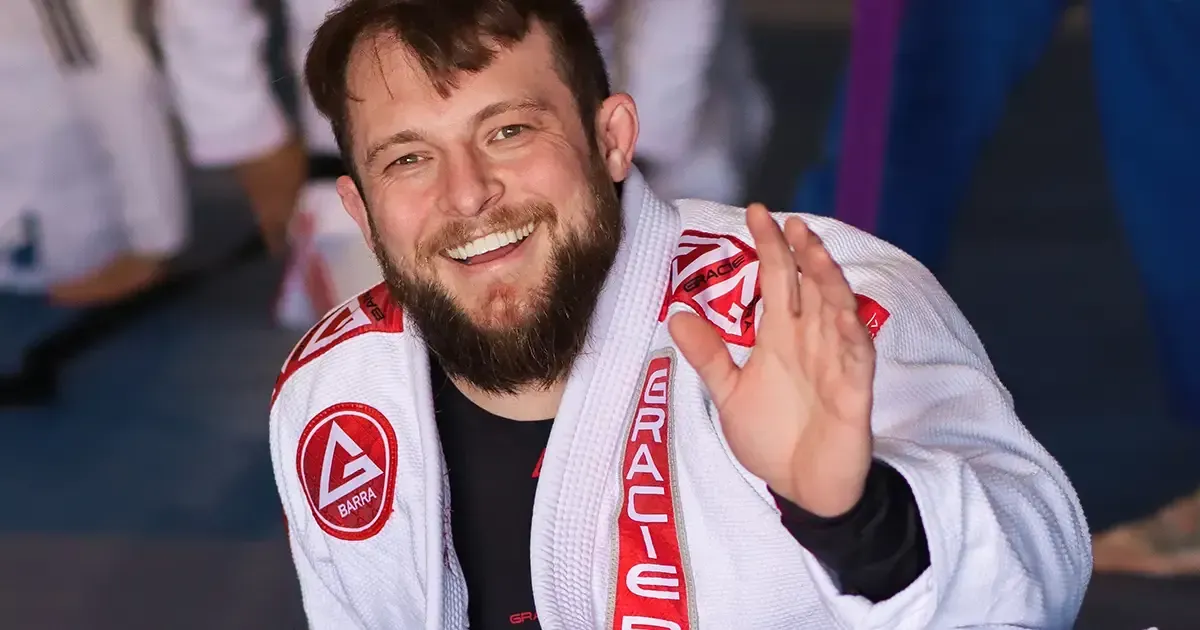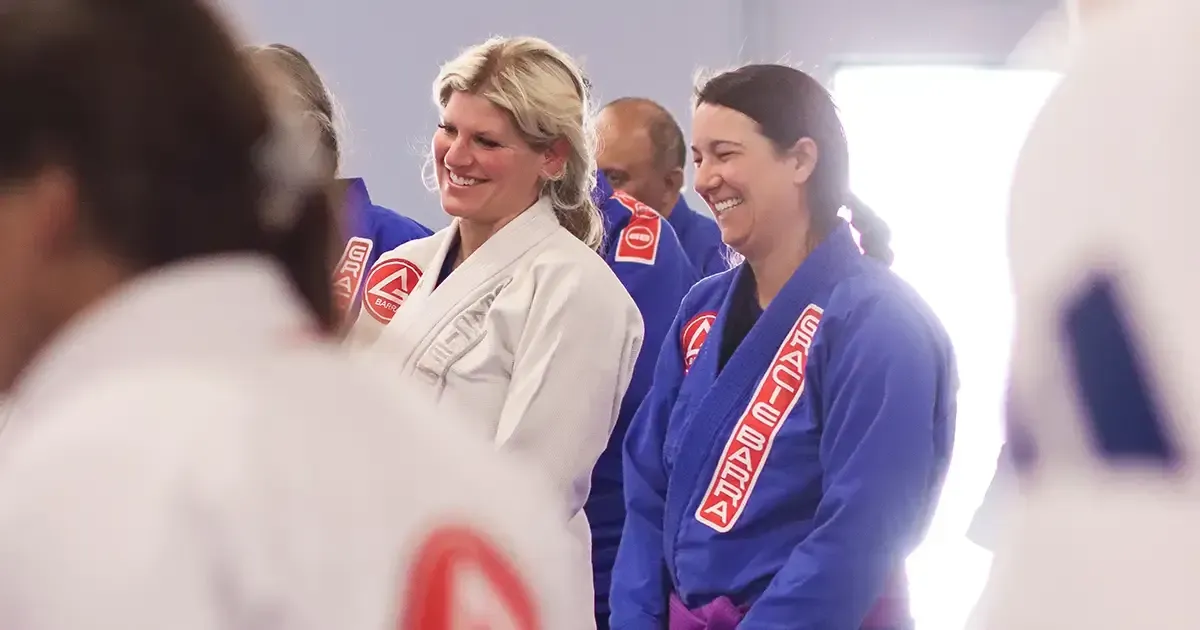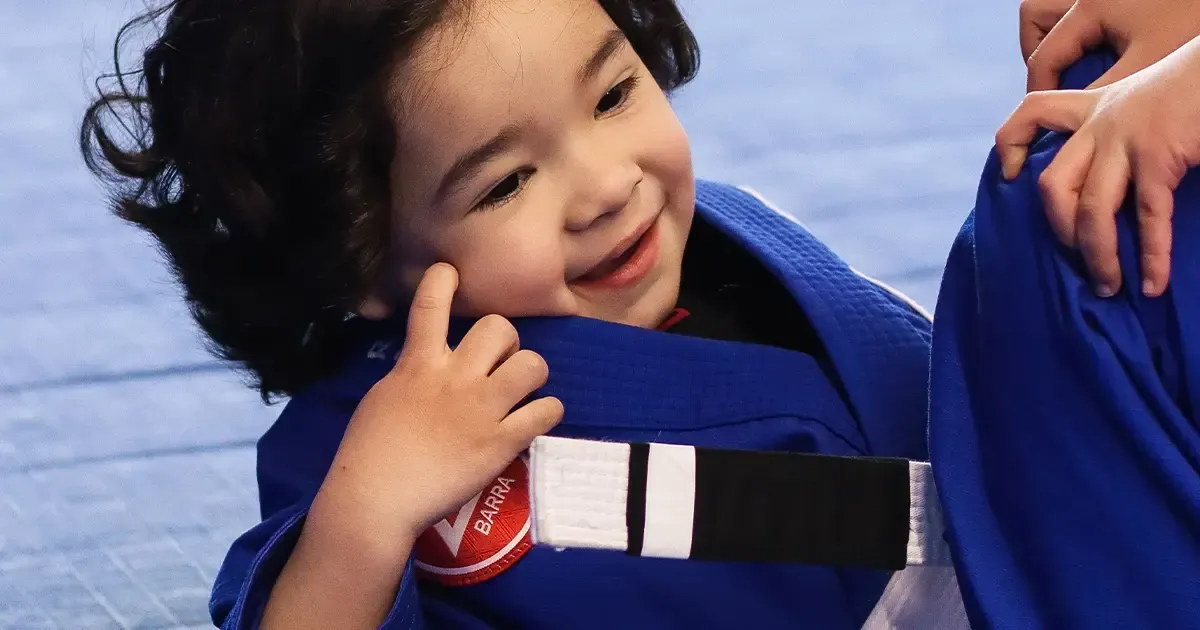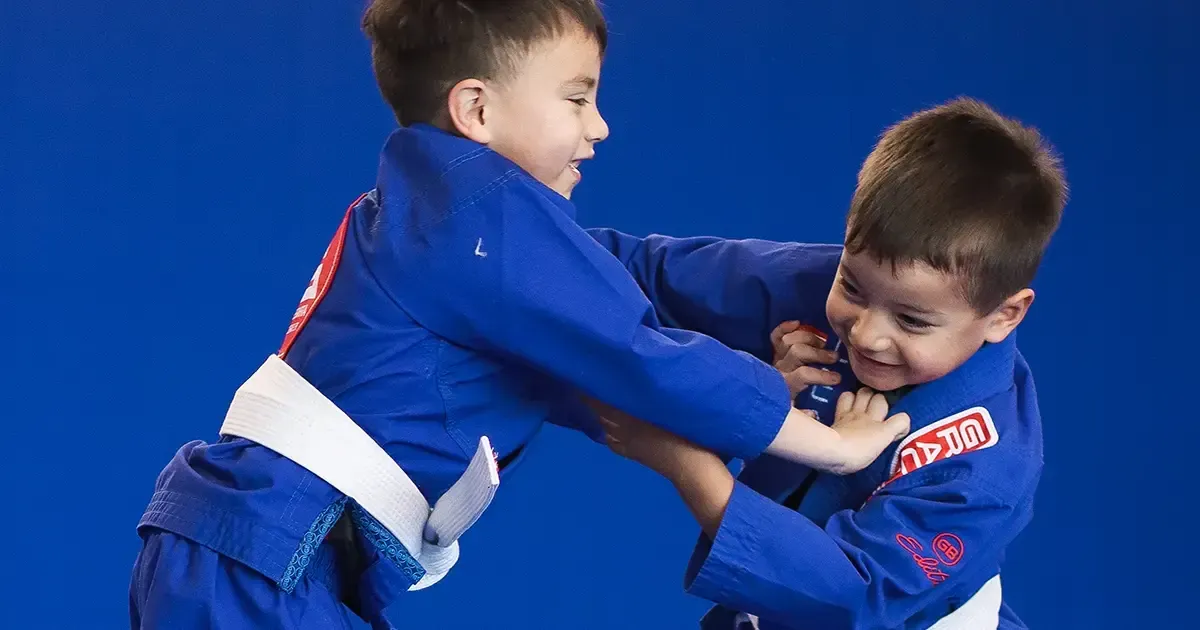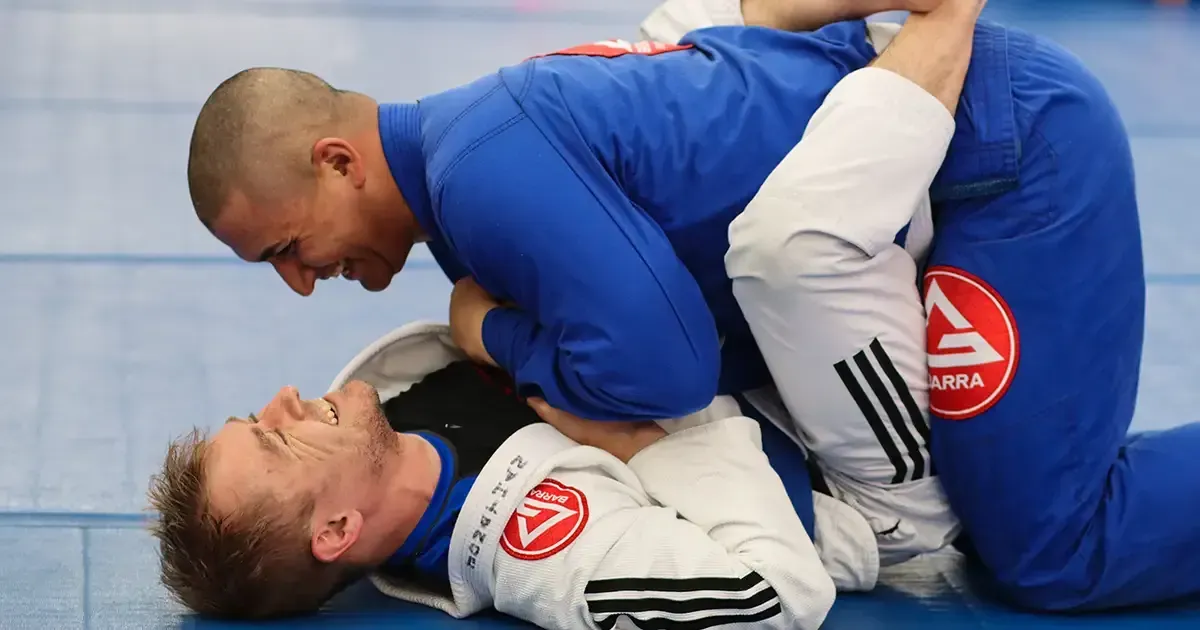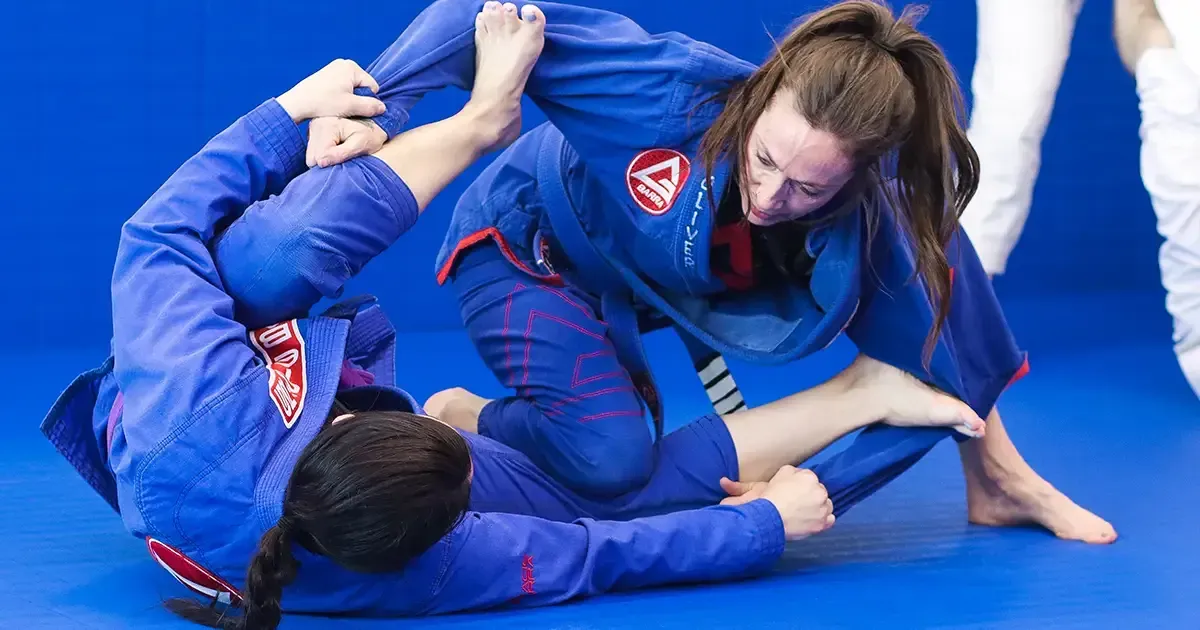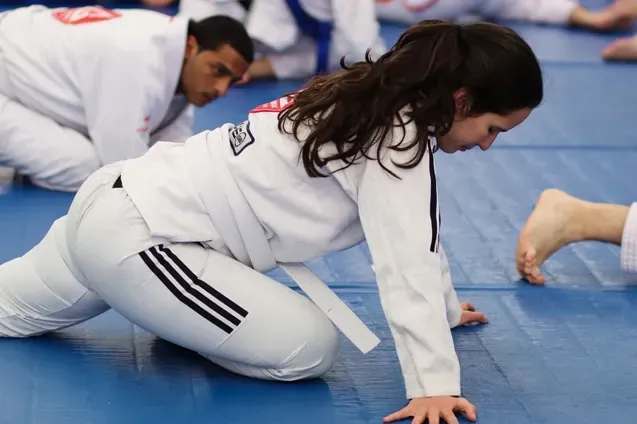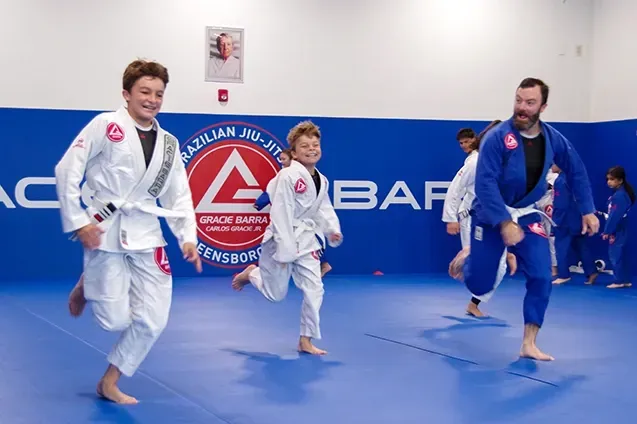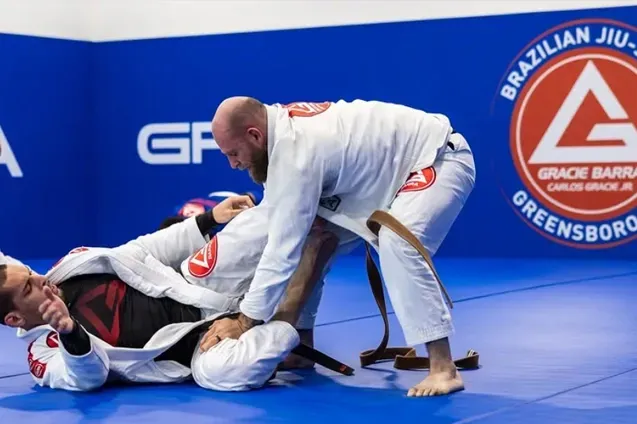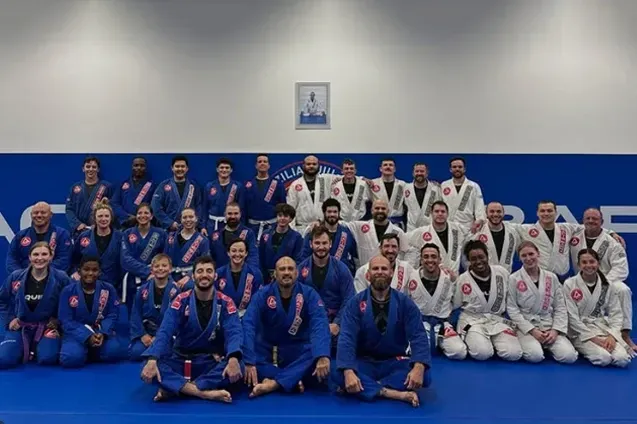How Does Jiu-Jitsu Help Kids at School?
Hi, I’m Coach Jessica Affolter, instructor at Gracie Barra Greensboro and, most importantly, a mom.
As both a Jiu-Jitsu coach and a parent, I know firsthand how challenging it can be to support our children as they grow, especially in today’s fast-paced, high-pressure school environments. Between academic demands, social challenges, and technology distractions, kids face a lot. That’s why I’m so passionate about what we do on the mats. Brazilian Jiu-Jitsu (BJJ) is more than just a sport. It’s a tool that helps kids succeed in school and in life.
In this article, I want to walk you through the real benefits I’ve seen in children who train Jiu-Jitsu, including my own, and explain exactly how this martial art translates to better focus, behavior, and confidence in the classroom.
What Is Brazilian Jiu-Jitsu and Why Do Kids Love It?
Brazilian Jiu-Jitsu is a grappling-based martial art that focuses on leverage, strategy, and control. Unlike striking-based martial arts, Jiu-Jitsu empowers children to solve problems through calm thinking and body control, not aggression.
Our Jiu-Jitsu classes at Gracie Barra Greensboro are built around discipline, respect, and teamwork. We make BJJ classes fun, safe, and empowering for children of all ages, starting as young as 3 years old.
“The biggest compliment I hear from parents is how their child comes home more focused, and that’s something every teacher appreciates too.” — Coach Jessica
1. Jiu-Jitsu Improves Focus and Attention Span
One of the biggest academic benefits of Jiu-Jitsu is improved focus. In a world filled with digital distractions, Jiu-Jitsu teaches kids how to be present.
On the mat, they must listen, watch, and follow instructions closely. They need to be aware of their partner, their body movements, and the coach’s cues, all at once. Over time, this intense practice of presence spills over into the classroom.
2. Jiu-Jitsu Builds Self-Discipline
In school, success isn’t just about intelligence, it’s about consistency, effort, and patience. Jiu-Jitsu helps kids develop exactly that.
At Gracie Barra Greensboro, we teach kids that progress comes from showing up, trying again, and pushing through when things get tough. They learn to delay gratification, set goals, and stick with a process, which mirrors the discipline they need to study, complete homework, and perform in class.
What Self-Discipline Looks Like in Jiu-Jitsu:
- Lining up when the coach calls
- Tying their own belt correctly
- Staying calm even when they lose a round
- Practicing a technique over and over until it clicks
These habits translate directly into better school performance.
3. Jiu-Jitsu Boosts Confidence and Reduces Anxiety
Many children struggle with self-doubt or anxiety in school, especially in testing situations or social settings. Jiu-Jitsu helps kids build real confidence based on effort and skill.
They don’t need to be the strongest or fastest, they just need to show up and improve. Each stripe and belt earned is a symbol of personal growth.
“I’ve seen shy kids walk in with their heads down and, within weeks, carry themselves with pride. That confidence goes with them into the classroom.” — Coach Jessica
Parents often tell us their kids are raising their hands more in class, participating in group projects, and even volunteering to read aloud, all things they used to avoid.
4. Jiu-Jitsu Teaches Conflict Resolution and Emotional Control
Kids will face peer pressure, bullying, and social stress in school. How they respond can shape their entire experience.
One of the most powerful things Jiu-Jitsu teaches is how to stay calm under pressure. When a child is in a live training scenario (we call it “rolling”), they learn to breathe, stay calm, and think instead of panic.
This skill transfers to emotional regulation outside the mat, especially during school conflicts or frustrating moments.
5. Jiu-Jitsu Reinforces Respect and Responsibility
Our Jiu-Jitsu classes are structured around mutual respect, for the coaches, for each other, and for the space. Kids learn to bow when they enter and leave the mat. They learn how to speak respectfully, wait their turn, and encourage others.
At school, this often shows up as:
- Better listening skills with teachers
- Improved manners
- Leadership in group settings
- Greater accountability for their own actions
6. Jiu-Jitsu Supports Physical Health and Brain Development
Kids need movement. Research shows that physical activity not only supports physical health, but also boosts memory, executive function, and learning capacity.
Jiu-Jitsu is a full-body workout that builds:
- Coordination
- Balance
- Motor planning
- Core strength
- Flexibility.
These improvements directly impact how children learn, write, and engage with school tasks, especially in early development years.
7. Jiu-Jitsu Creates a Sense of Belonging
The social environment at school can be overwhelming, especially for kids who feel like they don’t fit in.
At Gracie Barra Greensboro, every child wears the same uniform. There’s no competition over clothes or brands. Kids are encouraged to support each other regardless of age, size, or experience.
This community gives kids a safe place to be themselves and to feel accepted, which increases confidence and reduces stress during school.
“For many kids, this is the first place where they feel truly seen and celebrated just for trying. That’s powerful.” — Coach Jessica
8. Jiu-Jitsu Helps with Goal Setting and Motivation
Belt promotions in Jiu-Jitsu are structured and earned, not handed out. Kids set goals (like earning a new stripe or belt) and learn to work toward them over time.
This teaches:
- Delayed gratification
- Process-oriented thinking
- Intrinsic motivation
And guess what? That motivation spills over into academics. We’ve had kids tell us that if they can master a takedown or pass their belt test, they can absolutely pass their spelling test too.
Real Stories from Real Families
Parents from across Greensboro, Oak Ridge, Summerfield, and High Point have shared how Jiu-Jitsu changed their kids’ school experience.
Here are just a few examples from our Google Profile:
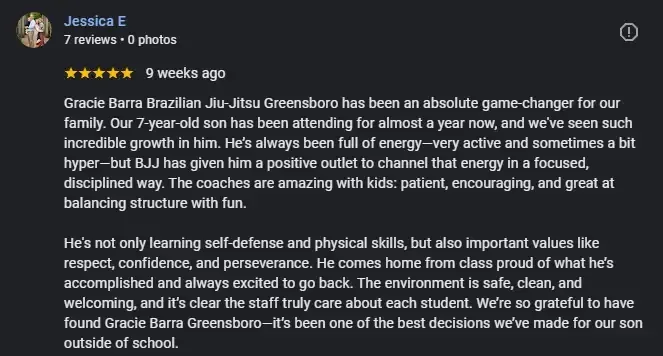

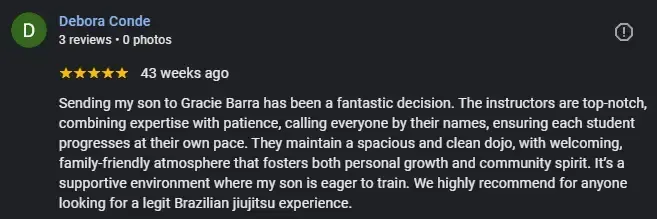
Common School Challenges Jiu-Jitsu Helps With
| School Challenge | How Jiu-Jitsu Helps |
|---|---|
| Short attention span | Builds focus through structured classes |
| Poor behavior or lack of respect | Teaches discipline and respect |
| Anxiety and low confidence | Boosts self-esteem through earned success |
| Struggles with peers | Builds social skills and emotional control |
| Low motivation | Encourages goal-setting and effort-based growth |
Final Thoughts from Coach Jessica
As a mom, I want my kid to be kind, confident, and capable, not just at home or on the mat, but everywhere they go. That’s why I believe so strongly in the power of Brazilian Jiu-Jitsu.
“We’re not just teaching arm bars, we’re teaching life skills. And I love watching kids take those skills into the classroom and thrive.” — Coach Jessica
If you’re looking for something that helps your child beyond just the school curriculum, something that builds their mind, body, and character, I invite you to bring them in for a free Jiu-Jitsu trial class at Gracie Barra Greensboro. Let’s help them become their best, on and off the mat.
Ready to help your child succeed in school, and in life?
Schedule your free trial class today at Gracie Barra Greensboro. We welcome kids ages 3 and up in a safe, supportive, and family-friendly environment.
👉 Book Your Free Class Now
FAQ – Frequently Asked Questions
Is my child too young to start Jiu-Jitsu?
We accept students starting at age 3! Our Little Champions program is designed specifically for younger kids with age-appropriate activities.
Will my child get hurt?
Safety is our top priority. All Jiu-Jitsu classes are supervised by certified coaches and designed to be safe and fun.
What should my child wear to their first class?
Just comfy clothes! We’ll provide a full and clean uniform for their first class.
How often should my child train?
Most kids start with 2 classes per week. We’ll help you find the schedule that fits best.
Can Jiu-Jitsu really help with school performance?
Absolutely. We see it every week, better focus, confidence, and behavior in the classroom.
